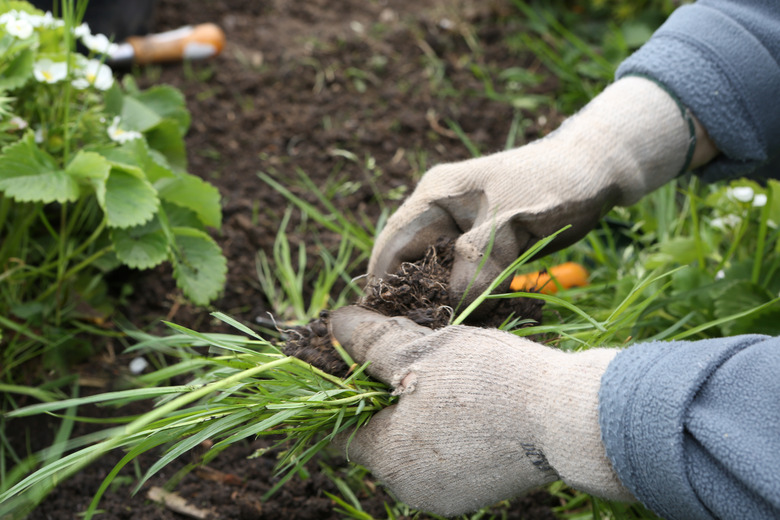Will Using Tar Paper For Weed Control Contaminate The Ground?
We may receive a commission on purchases made from links.
There is no available evidence that using tar paper for weed control will contaminate the ground. Tar paper is intended for use in the construction of buildings, however; specifically, it is used for domestic roofs. While many home and garden improvement enthusiasts may find themselves with leftover tar paper from other projects, repurposing it for gardening is not recommended as long as you have other options.
Tip
While there isn't specific evidence that tar paper will contaminate the ground, it is a petroleum-based product and should not be used around plants you intend to consume.
What Is Tar Paper?
What Is Tar
Paper?
Tar paper is a kind of roofing material composed of exactly the ingredients you'd expect based on its name. Thick mats of fiberglass or recycled paper are saturated in tar to create a dense, flexible and waterproof material intended to seal roofs before laying shingles.
Although tar paper can be used instead of landscaping fabric to help with weed control, it is not ideal for all of the same applications. Tar paper is inherently waterproof, so using it as a kind of surface-level weed control would block new weeds from taking root in a flower bed and would prevent light from reaching seedlings below it.
However, it would also prevent that flower bed from receiving water and would trap moisture close to the soil. Using tar paper as a flower bed liner would help prevent underground roots from intruding, but it would also prevent drainage, which could cause plant rot and mold.
Alternatives to Tar Paper
Alternatives to Tar Paper
Landscape fabric accomplishes many of the same weed control purposes without the drawbacks of being waterproof and of uncertain toxicity. If you do decide to use tar paper in gardening, the consensus from experts is that you should err on the side of caution and refrain from using it around vegetables, fruits or herbs.
The combination of landscape fabric and mulch is what professional landscapers use as weed control for two reasons: Together, these block light and are water permeable. Landscape fabric can limit unwanted plant root growth when placed in the ground as a liner while allowing extra water to seep through and drain away from your plants, protecting them from overhydration.
When placed on the surface of the soil with cuts to allow desired plants through, landscape fabric prevents weed seeds from taking root and prevents light from reaching weed seedlings below ground. A layer of mulch can also provide a surface-level weed barrier while still allowing the passage of water. You can find landscape fabric in a variety of colors and materials, allowing you to further customize the appearance of your flower beds and gardens.
It's worthy of note, however, that landscape fabric has its drawbacks. Generally, it's not really a permanent solution as it degrades over time. Really aggressive weeds find a way through the fabric from underneath it, while airborne weed seeds germinate on top of the fabric where they land.
Alternative Uses for Tar Paper
Alternative
Uses for Tar Paper
Tar paper can be used as a base layer when installing a path to help prevent weeds from pushing through the layers of sand, pebbles or mulch above. You should be aware, however, that more stubborn seeds landing in those upper layers can still take root, so this application should be supplemented by regular applications of herbicide a safe distance from any plants you plan to consume.
You can also use tar paper to make temporary pots or containers to hold plants' root balls if you need to transport or transplant them. When heated with a blow dryer, blow torch or heat gun, the tar will soften, and you can press shaped sheets of paper together (while wearing thick gloves) to create a sealed shape of your design.
